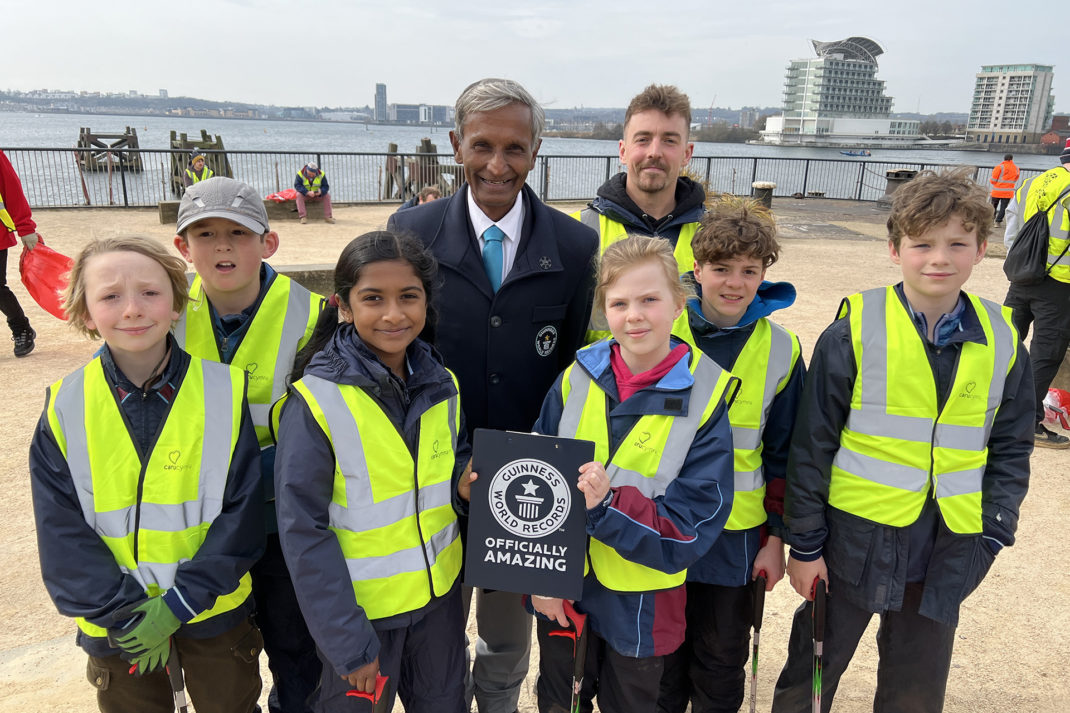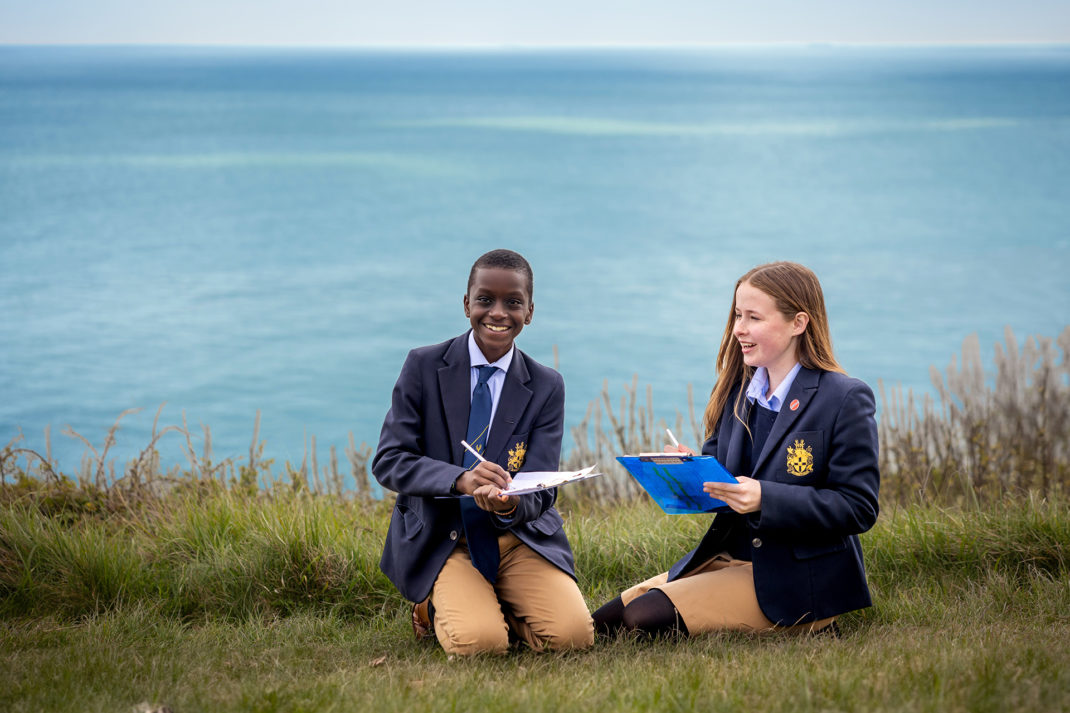This Teen Author’s Advice: Writing About AI
By
6 years ago
Oladimeji Abidoye went to Buckingham University to study computer science and found himself writing a book
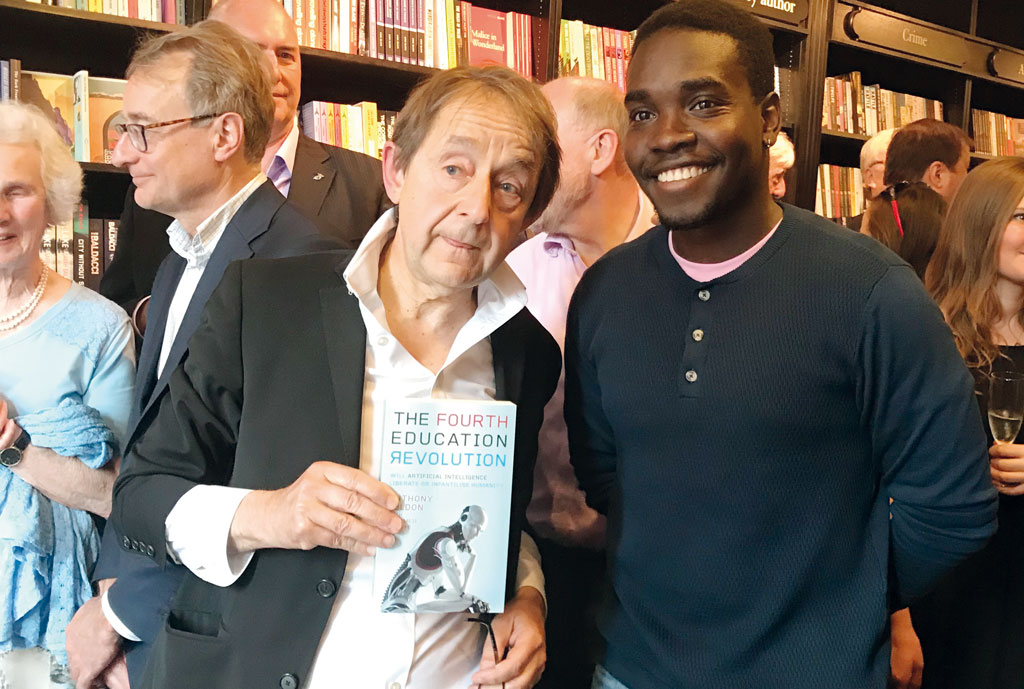
Oladimeji Abidoye shares the highs and lows of writing and mentorship
Books have always held me in deep thrall. My grandfather was an English professor and my mother taught literature in English for several years, so I grew up immersed in books. Therefore, it is quite surreal that today I can hold in my hands, a book, with my name on the cover and my photograph on the back. And it’s quite odd how it all came to happen.
A Lucky Accident
I arrived at Buckingham University in February 2017 to start a Master’s degree in Applied Computing. I got my BSc in Computer Science with a minor in Creative Writing at Duke University in Durham, North Carolina. Attending Buckingham was a bit of a lucky accident.
After graduating from university, I moved to the Ivory Coast with one of my best friends to found what we thought would be the payment platform for Africa. Unfortunately, things did not work out quite the way we had intended and upon realising we had misjudged the scope of what we wanted to achieve, I decided I needed a fresh start, which Buckingham offered me.
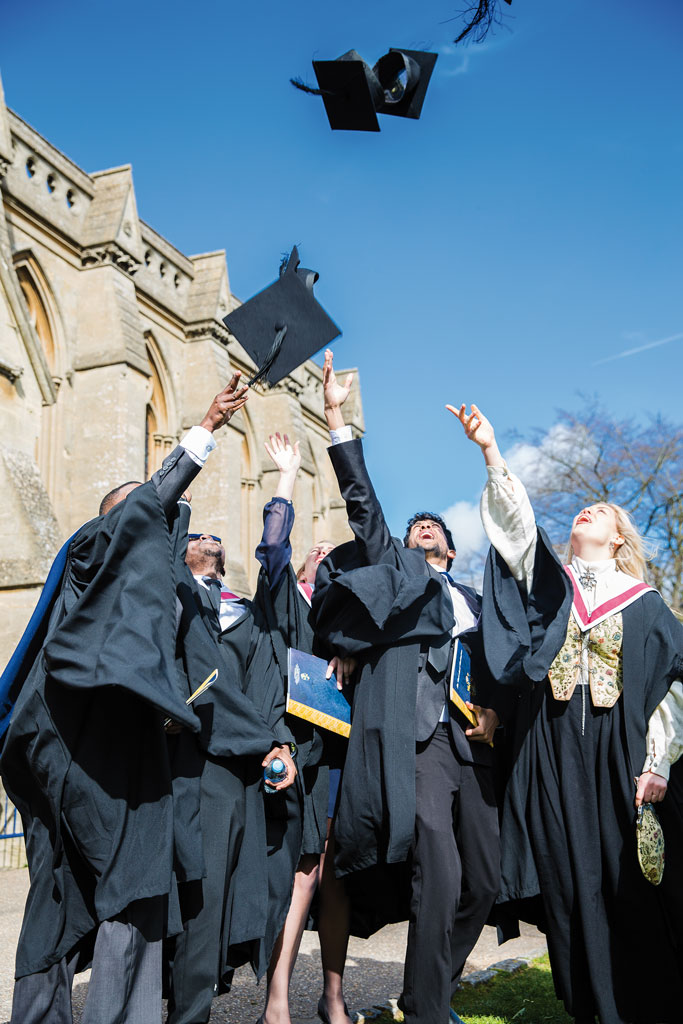
Oladimeji met Sir Anthony Seldon at Buckingham University
I arrived late in the term, as I had not been able to get a visa in time. I was disoriented and unaware of the avenues that existed to explore interests outside of the classroom, one of which is Artificial Intelligence.
Although Artificial Intelligence can only reasonably be described as being in its infancy, it is deeply fascinating because of the effects it is already having on our lives. AI can do incredible things, but this does not mean it will create an instantly rosy future, which is why a lot of deep thinking must be done, and policies implemented, specifying exactly how we want to use to Artificial Intelligence.
I was thinking about these things when I was introduced to Sir Anthony Seldon by the head of my department, Dr Harin Sellahewa, who told me that Anthony was interested in speaking about some of his ideas on Artificial Intelligence.
A Learning Curve
Before starting this project, the longest thing I had written was less than 30,000 words, then suddenly I was supposed to write a few thousand words every night. I often felt overwhelmed and lost, but working with Anthony, seeing his passion for education and his experience as an educator, taught me valuable lessons about writing, educating and life in general.
The first of these is that passion does not always feel passionate in the moment.
When I was writing a few thousand words a day, there were several moments when my prevailing sentiment was boredom. But I pushed through the uninspiring bits and learned that the mechanical process of generation is just as important as the moments of inspiration.
I also learned how to give feedback. Often it is difficult to communicate displeasure while making others feel valued. Anthony showed me exactly how to do this. When I turned in a subpar draft, Anthony knew how to tell me it needed to be improved, while maintaining that my work was important and my efforts valuable.

Oladimeji Abidoye (right) with Sir Anthony Seldon
A Lesson on Perfectionism
Lastly Anthony taught me how we must not let perfect be the enemy of ‘good enough for now’.
Sometimes, the first thing we create is not the best possible thing that can be created, but at least something exists now where nothing existed before.
We can begin to iterate. And iterate. And iterate. Whilst authorship is amazing, the real value was in the process and the experience of working closely with a tireless, passionate and exacting man.
A Project of Passion
I know I am incredibly lucky to have been given the opportunity to work with Anthony and am so grateful he chose to believe in me, when there are many more qualified and knowledgeable people he could have chosen.
However, there are some things I think helped me, such as following my interests and ensuring that the people around me knew what those were, so they would think of me if an opportunity revealed itself.
So, if I have any advice, it is to keep exploring and sharing what you care about, and opportunities will present themselves. People are listening and you will be ready when they come calling.
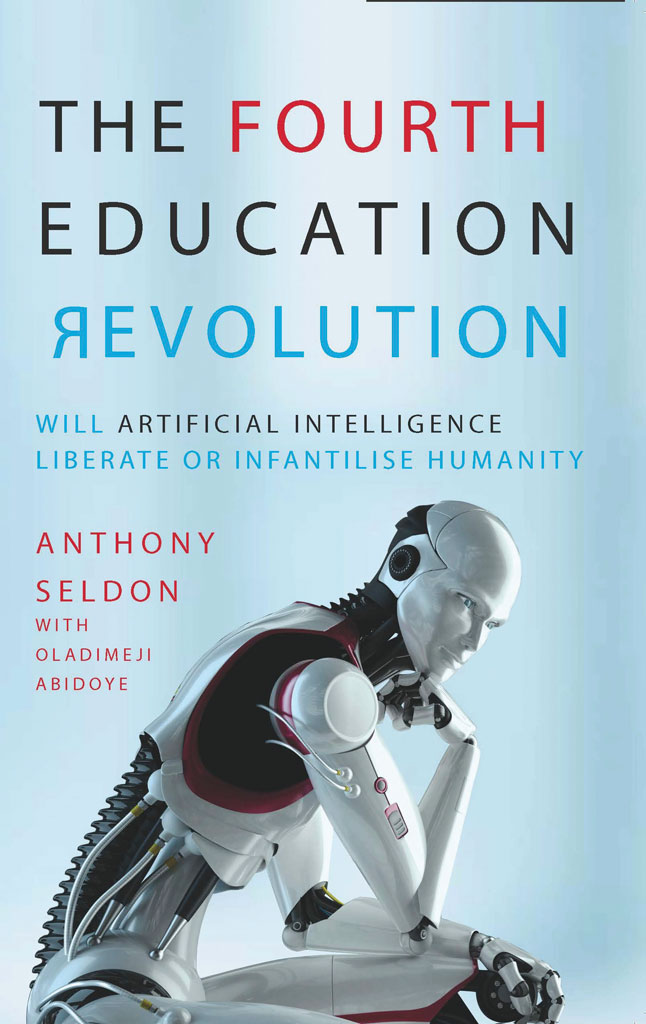
The Fourth Education Revolution: Will Artificial Intelligence liberate or infantilise humanity? by Anthony Seldon and Oladimeji Abidoye is available in book stores and from Amazon
This article was originally published in the School House AW18 issue.
READ MORE: The Best Way to Use Technology in Schools

